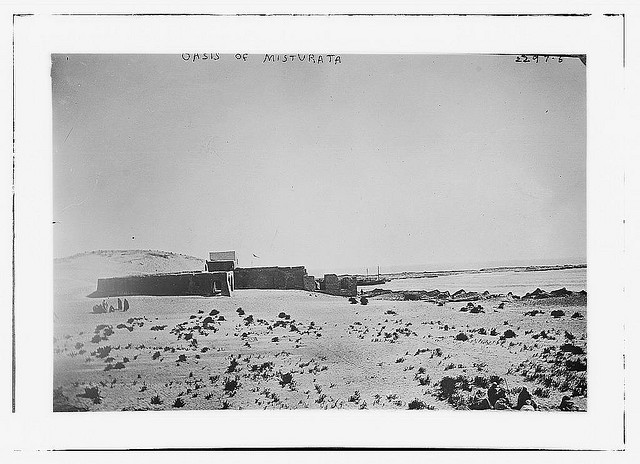Conversations with a Libyan Aid Worker

When I asked her what she saw as the biggest problem facing Libya's transition to stable, democratic rule she answered that it was a lack of institution building. As she described it, strong institutions were deliberately and completely dismembered under the Qaddafi regime. Now, following his overthrow Libyans lack the time and the skills to build the kinds of sustainable organizations that could meet the long term needs of the people.
When I asked her what could be done about this, she said that she thought the government needed to take time out from "putting out fires" - responding to every demand as if it were a crisis, and focus on building strong, sustainable state institutions. "But," I asked her, "Do you think the people would stand for it?" If the government stopped responding to these "crises," could they maintain the people's support?
Her reply was confident - yes - if the government could communicate what it is doing and why. If it could make clear that it cannot provide people with what they need and want immediately - because they need to take this time to build a strong state for the future. They could ask the people to have patience and try to fill in for the state for the time being - to tell them "there will be no trash collection this year - we can't do that - could you?" People would be happy to do it, she said. It would give them ownership over the transition, give them agency and a stake in the emerging state.
Is it that simple? I don't know - the idea seems ambitious and intuitively appealing at the same time.
As these thoughts turned over in my head this afternoon I came across an Al-Jazeera interview with a former rebel fighter, Hamza Ali Ashatloui, now out of work and spending his time volunteering to build schools and guard the local weapons depot. The article, which contains four short interviews can be found here, but I wanted to excerpt part of it below:
Reporter: So the revolution has destroyed your livelihood . . .
HAA: I don't look at it that way. We need to be patient now that Libya is free, thank God. Even before the revolution, if you worked as a small employee for the government, there would be times that you wouldn't get your salary for three months. Now, if you work for the government in whatever capacity, you will get your salary every month, on time. So, we must be patient?
Reporter: Whom will you vote for on July 7?
HAA: I don't know the names of the candidates yet, but it will be someone who loves Libya and can hold the country together, who can create peace between all regions, including the south. It needs to be someone who can help young men getting back to work, so that they can get married. But first, peace in the country is the most important thing.
It is the patience, self-sacrifice and public-spiritedness reflected in his responses, and in so much of the news from Libya since the revolution began that makes me think there is something to the woman's idea.